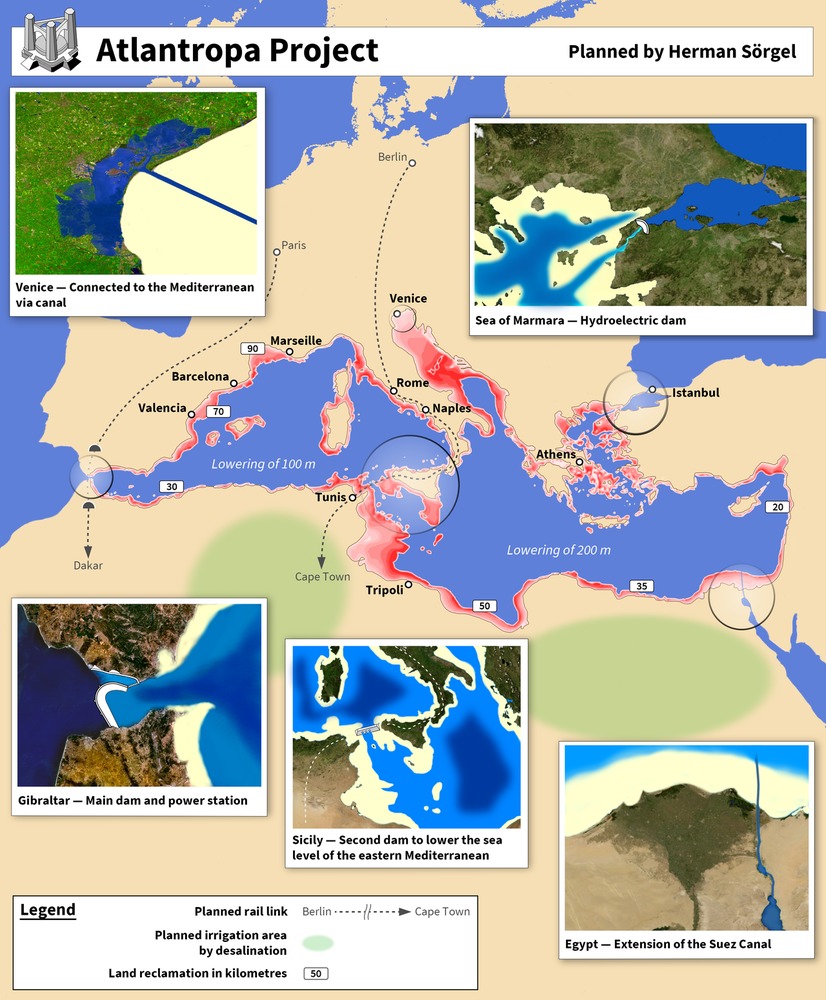party_pants said:
dv said:
Atlantropa, also referred to as Panropa, was a gigantic engineering and colonisation idea that was devised by the German architect Herman Sörgel in the 1920s, and promoted by him until his death in 1952. The project was devised to contain several hydroelectric dams in key points of the Mediterranean Sea, such as the Strait of Gibraltar and the Bosporus, to cause a sea level drop and create new land to settle.
https://en.m.wikipedia.org/wiki/Atlantropa

I think it would have been a bit of an environmental disaster. The Med would have dried up and turned into a massive salt pan. Not sure if much habitable or agriculturally productive land would be created as a result of it. It would have stunk too, with much dead and decaying matter. Not to mention ruining rainfall and climate patterns, it would have made the eastern Med drier and less habitable.
I’m not in favour of it. Quite apart from the obvious environmental disaster, it would play hell with shipping.
It has happened before, totally naturally. Several times. Geological forces caused the strait of Gibraltar to close. And yes, the Med had dried up and turned into a massive salt pan.
Gibraltar Bridge is better.
As for the salt, the Dutch seem to have solved that problem when reclaiming large areas of land from the sea. I don’t know how they did it.
It’s nice to see that engineers are still thinking outside the box. Or at least were thinking outside the box 102 years ago.

